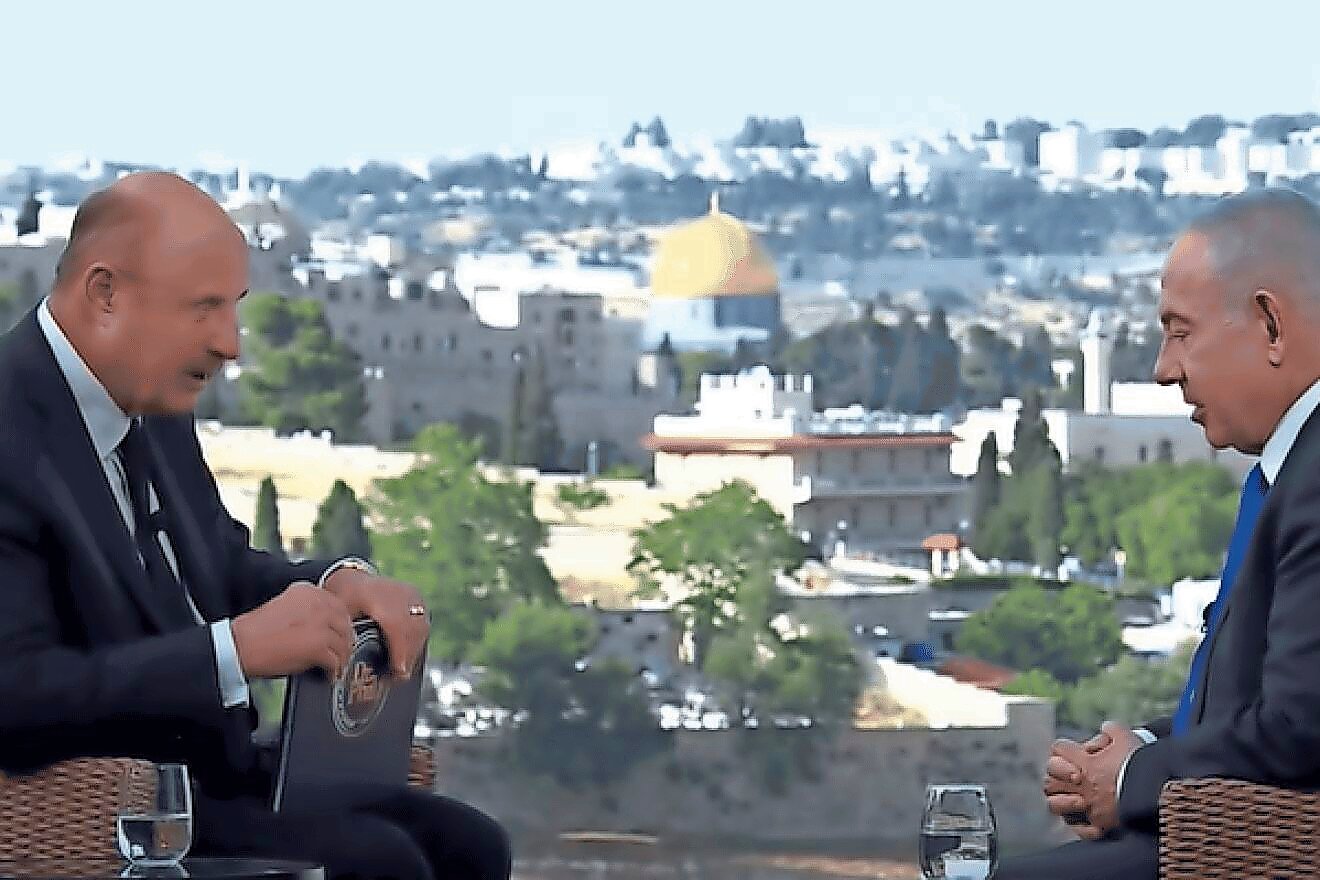Dr. Phil’s Bibi interview delivers moral clarity
It’s not surprising that the press had a field day following Dr. Phil’s interview last week with Israeli Prime Minister Benjamin Netanyahu.
Until recently, the iconic TV psychologist, who on April 1 launched the multi-platform media brand Merit Street, was known mainly for his on-screen assistance to people with a variety of problems, from marital infidelity and parenting to eating disorders and drug abuse.
Furthermore, the “Dr. Phil Primetime” one-on-one came on the heels of President Joe Biden’s decision to withhold munitions from Israel over the IDF’s Rafah operation. It also preceded Israel’s Memorial Day for Fallen Soldiers and Victims of Terrorism — of particular weight this year — and the 76th anniversary of the modern Jewish state’s establishment.
It was therefore inevitable that the media at home and abroad would scour the conversation for sexy headlines. Two elements of the nearly hour-long exchange ostensibly fit the click-bait category.
One was Netanyahu’s “accepting some responsibility” for the country’s having been caught off guard by Hamas’s Oct. 7 invasion.
“We can get into this discussion and we will, but right now, we have to win,” he told Dr. Phil.
“There were failures, obviously. … The government’s first responsibility is to protect the people. That’s the ultimate, enveloping responsibility, and the people weren’t protected. We have to admit that.”
The other was his response to Washington’s arms embargo.
“I’ve known Joe Biden for more than 40 years,” he said. “We’ve had our disagreements; we’ve been able to overcome them. I hope we can overcome them now. But we will do what we have to do to protect our country, our future, and that means we will defeat Hamas, including in Rafah. We have no other choice.”
• • •
Dr. Phil’s performance was highly noteworthy for its moral clarity. Unapologetic pro-Israel voices are as rare in Hollywood as they are among journalists and academics, after all. No wonder his words weren’t highlighted by reporters.
Still, his introduction to the sit-down with Netanyahu perfectly encapsulated a view of the Gaza war that everyone, including Israelis, would do well to hear and internalize.
“Tonight, I stand in the city of Jerusalem, the holiest place in the world, sacred to Judaism, Christianity and, much later in history, to Islam,” he began. “This is also center stage for a war started when the terrorist organization Hamas perpetrated a brutal massacre against primarily Israeli citizens.
“This murderous attack saw the most Jews slaughtered in a single day since the Holocaust. Approximately 1,200 killed, including many women, children and elderly — all unarmed — as well as over 4,000 wounded. Approximately 250 civilians were kidnapped and, as evidenced by video, beaten, brutalized and thrown into inhospitable imprisonment, to say the least. It’s believed that there are still 132 hostages currently in Hamas captivity, although it is unknown how many are actually alive.”
He went on, “This war is between Israel, the Jewish homeland, and Hamas, a terrorist group that has taken over the territory known as the Gaza Strip, which Israel gave up, in a goodwill effort for peace, in 2005 — occupied by Palestinians, many of whom willingly harbor the terrorists, or at least are sympathizers. Others are clearly trapped in a bad situation.”
He continued, “This unprovoked Oct. 7 genocide, and Israel’s predictable response, is also dividing the world, as evidenced by the out-of-control protests seen on too many college campuses across America. I was present on the UCLA campus recently, speaking with Jewish students and Israeli Jewish students throughout the day and through the takedown of the pro-Palestinian encampment late into the night. Masquerading as exercising their right to free speech, these UCLA protesters, along with others on campuses across the nation, have resorted to threats, intimidation and physical assault to suppress pro-Israeli counterparts.”
Finally, he pointed out that he was conducting the interview with Netanyahu “at perhaps the most critical time in this conflict — a conflict with implications the world over.”
He sure got that right. And neither he nor Netanyahu disappointed in emphasizing that fact.







